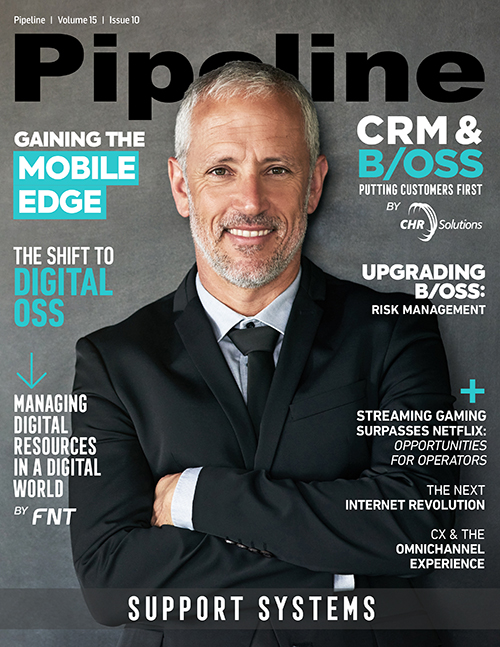Article Index for the May Issue:
May 2019 - Support Systems
May 2019 - Support Systems
CRM & B/OSS: Putting Customers First
By: Arun Pasrija
» read this article
How Operators Can Gain an Edge with Mobile Edge Computing
By: Shamik Mishra
» read this article
Why risk management and revenue assurance canât be left behind when upgrading your B/OSS
By: Bernardo Lucas
» read this article
Shifting from Voice to Digital OSS
Let me start with a story. When I first entered the OSS market 20 years ago, I joined a company called Granite, which was first acquired by Telcordia Technologies and later by Ericsson. At the time, it was one of the most advanced inventory systems available, competing with other inventory systemsâsmall and largeâsuch as Cramer Systems. To my surprise, the companyâs product is still used and is in production in many places today. Twenty years ago, we could make OSS platform decisions with reasonable confidence that our choices would remain viable for many yearsâŠÂ» read this article
Streaming Gaming Surpasses Netflix: Opportunities for Operators
Netflix drove bandwidth usage. But wait until Google, Microsoft, Sony, and Amazon all launch their streaming gaming service.Toss out those boxes and consolesâthe future of gaming is here. Googleâs announcement of its new gaming platform, service and game development house, Stadia, means that firing up your gaming station will become as simple as opening a Chrome browser on your laptop or smartphone or streaming games directly to your TV. Google unveiled its plans during its keynote at the 2019 Game Developers Conference in San Francisco, California, but skimmed over what this development actually means for network operators, and just how the real-time application will drive increases in bandwidth requirementsâŠÂ» read this article
Managing Resources in a Digital World
By: Bernd Pruessing
» read this article
Understanding the Internet Revolution
By: Jamie Lin
» read this article
Taking customer experience across the omnichannel
By: Stephen Pappas
» read this article
Letter from the Editor
In article I wrote several years ago, I declared the official "Death of OSS." And it had, in fact, been dead for quite some time by the time I made the declaration. And I know some of you, even now, may be thinking of that old clunky OSS you may have bought from Cramer, Syndesis, or Telcordia, all of which have been bought, sold, and resold since then. And you may be thinking that you still use those systems still to this day. Which may be true, but it doesn't change the fact that they are still quite deadâŠÂ» read this article
Telecom Industry News
This monthâs telecom industry news included the first 5G network for commercially available smartphones in Europe, as well as robust new partnerships driving industrial IoT development. Juniper Research shared predictions on the growth of digital content spending and on the increase in cross-border blockchain transactions. Updates on smart home and smart city advancements, VNF service deployments, and the FCCâs repeal of the 2011 ârate floorâ rounded out the news. The top telecom industry news is summarized belowâŠÂ» read this article

















